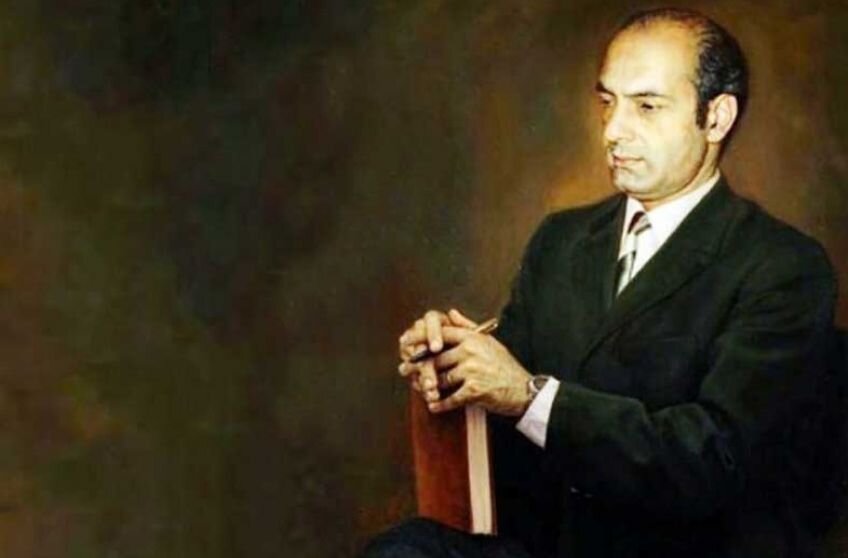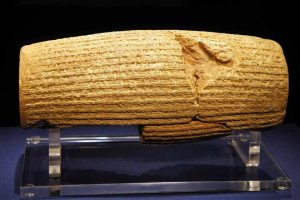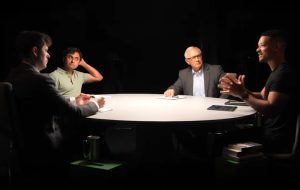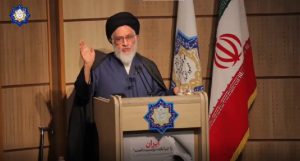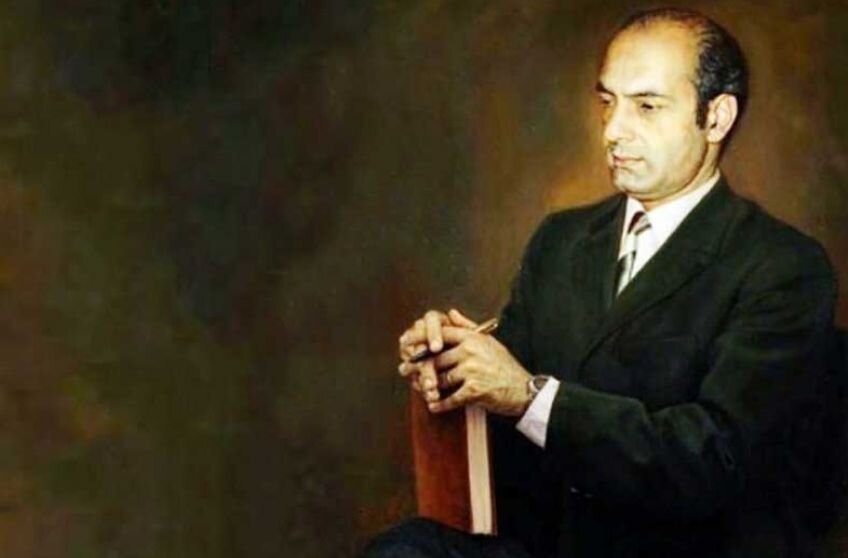
Thought Group: The following is the doctor Abdul Rasul Khalili University professor, in the newspaper Trust On the occasion of the forty -eighth anniversary of the death of Dr. Ali Shariati. This is analyzed by the different aspects of thought and the influence of Dr. Ali Shariati. The author introduces Shariati as the Returican intellectual who, using religious, literary, and addressing, criticized modern ignorance and religious distress and sought to revive the “self” and historical self -consciousness of the Iranian nation. This article deals with the deep analysis of the intellectual dimensions and the role of Dr. Ali Shariati in the Enlightenment of Iranian society. The author considers Shariati a prominent retourist who, with the art of speech, rhetoric, and strong reasoning, criticized “modern ignorance” and “religious distress”. Shariati, with a religious view of ideology and social and cultural criticism, sought to persuade audiences to accept enlightenment and change. The main focus of Shariati’s thought is the “return to self” that the author considers not to return to the past but to recover identity in the age of modernity and to move towards the future. Shariati believed that the Iranian man should be able to find his relation to the past and the modern world in the turbulence of modernity and to save from “cultural self -esteem and spiritual colonialism”. In his article, Khalili, Shariati’s prominent features include the revival of spiritual reserves, the criticism of intellectuals who confused modernity with civilization, the creation of a global place for Islamic and Shiite thought, equality -based development, freedom and mysticism, and popular intellectuals. The author emphasizes that today’s society needs Shariati’s abandonment intellectual to honestly use its ideas for the thirsty youth of truth and reach the “brotherly paradise of society” in which equality dominates. He believes that Shariati was able to gather the intellectuals of the Islamic world and show the global role of Islam in the consolidation of social justice and the provision of individual freedoms. This is ultimately regarded by Shariati as the first person in the constitutional era to get out of ordinary intellectual activities and go beyond. This article reads:
****
Shariati’s ideas were the lost way of enlightenment in the face of modern ignorance and religious ritual
Retoric is a rhetoric and utilization of the technique of lecture, rhetoric and art that is used by the use of literary language, the art of lecture, and the power of reasoning. The term means the art of expression and the art of persuasive persuasion, which was briefly existed in Dr. Shariati’s lectures. Retoric is the art of using language to encourage the audience to do the desired or accepting thoughts with a beautiful and effective expression. Returick Shariati, as a critique of modern ignorance and contemporary Iranian intellectuals, is one of the most prominent aspects of his works and lectures. Shariati, using the religious, literary, and addressing language, sought to criticize the cultural and intellectual status of Iranian society, and especially the intellectuals who, in his view, were in a modern ignorance. He, with a religious view of ideology and social and cultural criticism by serving the persuasion of the audience, changed to accept the enlightenment. Shariati’s ideas were therefore the lost way of enlightenment in the face of modern ignorance and religious rituals. His language was pursued in understanding things with a mixture of religion, society, and a revolutionary view of issues by inviting people’s historical self and awakening, so his passionate and metaphorical language can be considered as a prominent and influential thought among Iranian intellectuals and youth.
Shariati, a true audience of Iqbal Lahori
Shariati, an ever -present and absent present, was a true audience of a good audience of Iqbal Lahori in the land of Iran who, in principle, viewed religion as a cultural source and called for the purification and extraction of this source, which was the sole criterion for its ability to purify it. He relying on himself and by extracting and purifying cultural resources, revived and rebuilt the huge spiritual reserves of his own, which was stagnant and unknown and turned into an informative and protest force. The ways, in his view, are conscious and responsible for enormous cultural resources. He viewed the mix of containers and the interruption of religious culture and ethnic cultures, encouraging Muslims to abandon them from derogatory cultures and truth and preserve the soul and transformation, and presented themselves from self -sacrifice and backwardness. In his view, anyone who is intellectual must acquire the materials of their work from the social life of their own community and their time. To imitate and to look at issues. He considered one of the great catastrophes to be the numerous and sometimes ridiculous bitchs of the modern intellectual currents that confused modernity with civilization and called civilization a modern or ignorant modernity.. For Shariati, what cannot be doubted in one word is that Islam in the modern age of Renaissance began with Seyyed Jamaluddin Asadabadi, and this is everything or is the beginning of everything. Sayyid Jamal was the one who was influenced by both the constitutional clerics and the intellectuals.
Shariati’s discourse was more about the new-time time than returning to the past
Returning to Shariati is the return to the Islamic roots of Iranian civilization in a coherent way, His discourse was more about the new-time time than returning to the past. Therefore, his ideas were more fashionable and modern than the past. The nature of Shariati’s thought was today. He relied heavily on phenomenological cognitive principles, for this reason, the paradigm of return to his self became the main discourse of Iranian intellectuals, and unlike some, this paradigm is not a paradigm to translate from that Salafism, but a return to the future. Therefore, when it comes to returning to self, its main meaning is not to return to the past. Returning does not mean returning, but it means again, that is, re -finding self and identity on it, that is, the Iranian man must be able to find his relation to the past and the modern world in the turbulence that modernity has created. That is to say, to regain its human personality and historical and cultural authenticity, that is, to be self -conscious and finally saved from cultural and spiritual colonialism. As it was effective, though it may not have been the result soon.
Shariati has always felt that there was little opportunity for this generation, and if this generation passed, all of them would be molded and washed. All will be cut and shaved and made. He was looking for a generation that could be intermediate between the next generation and the previous generation. He has been discussing the modern historical ditch of the intellectuals and the people of the bridge, so that none of the intellectuals of Iranian society have been able to enjoy such a widespread influence and popularity, like him, despite the poisoned and unfavorable spaces that spider strings were all intertwined against him. He viewed his greatest success as the transformation of the unconscious culture and tradition into a conscious and conscious school.. He, of course, compared to the course of contemporary peace and revivalists, made the young intellectual generation more armed against the intellectual and political invasion of hostile powers and rival ideologies. That’s why his place is very empty right now.
What is Shariati’s West?
What Shariati seems to be called westernization today is a catastrophe that is due to the lack of scientific familiarity with the West and the new Western civilization. In his view, the only way to fight the West and return to its human personality is to dominate it and to find the power of recognition and choice against the West, and this is achieved only through its intellectual and spiritual superiority, that is, accurate and scientific knowledge and evaluation. Thus, the conflict between equality, freedom and mysticism can provide sufficient capacity and capacity to modernize and critique a role in rebuilding the identity of Iranian society and leading the process of comprehensive development. Therefore, by realizing this approach, the beam of reason can be expanded into the field of ethics, value and facts, and freedom and equality also focuses on the supreme human values and truth, beauty and ethics.
Therefore, all the material and spiritual possibilities for the welfare of Iranian human beings in the realm of tradition must be used, because the type of look at tradition and modernity must be two sides of one coin. As you can make the results of both of our results. If we can be like this Along with the understanding of modernity and tradition, where we do not know the two against each other, their empty half can be completed with each other’s thinking. It is our need for Shariati today to find his purity in the way of achieving the truth, language and pen and his enlightened action. Our society today needs Shariati’s liberation enlightening intellectual, so that we should not and cannot imagine that today’s world can be flown with one wing, although it can be proven that modernity and tradition in Iranian and Iranian society have been the same after Islam.
Dialogue of Wise Thought and Proliferation requires the advancement of revolutionary goals in the post -revolutionary era
The discourse of wise thought and pragmatism requires the advancement of revolutionary goals in the post -revolutionary era that Shariati has worked hard to develop. He consumed his ability in this way so that people could understand the liberating thought of colonialism and stacking. The idea that the social translation of religion is, as we had to globally make our religious, national, and religious myths. Shariati welcomed the new ideas of new and retore language that could influence all Shiite and Islamic ideas and ideas in a global format. He founded a link between Islamic thought and the achievements of the new civilization and recognized the basic beliefs of baseless beliefs. On the other hand, it is such attitudes that the contradictions with the Sunnis, the history of the prophets, and especially the West, are resolved. A new and effective approach to separating the true foundations of religion from the traditions and customs that have gradually found religious color. Therefore, the forms of today’s education can be determined in any name, whether religious and non -religious at the present time. If Dr. Shariati had the opportunity, it could have gathered the intellectuals of the Islamic world in the same way as Seyyed Jamal al -Din Asad Abadi and Mohammad Qalib Lahori had taken the role of Islam in the consolidation of social justice and the provision of individual freedoms to the world..
Shariati was the first to get out of the ordinary area of Iranian intellectual activity and look out of this space
His works are the legacy of the religious enlightenment of our society. His paradigm mechanism is a solution that has made us ready for globalism and localism. He was the first person to get out of the ordinary and permanent field of Iranian intellectual activity than others from the constitutional era, and to look out of this space.. The book Return to his self in Egypt was translated by Ibrahim al -Dasuqi, a professor of Oriental Language, and published with one hundred thousand copies. Shariati was the first to break Iranian intellectuals in recent times and became a longtime spokesman for their longtime. Like many Western philosophers, he was like Friedrich Hegel and Martin Heidegger. The form of an oral relationship, along with his new and revolutionary thought, made him a popular intellectual along with his written works. Its model of development was equality, freedom and mysticism, none of which were separated.
Mysticism revealed his theoretical image of the world and man. Equality reflects his image of justice, and freedom was a democratic and anti -authoritarian look and anti -dignity. Shariati was looking for a kind of political and social system in which one would not be self -evident and alienated. A system in which man can manifest his humanity in social and political relations and reach the stage that was one of the historical targets of human beings, namely the freedom and the collapse of all walls, and prisons and prisons, including the algebra of society, the algebra of nature, and the algebra of self from humanity.
Therefore, the intellectuals of Iranian society are lending to their ideas where they want to be raised, some who try to grow up through his criticism, though they still become smaller and smaller in their fraud. Honesty of dealing with Shariati can bring us his ideas and water thirsty youth, girls and boys today who are looking for a new word. What illustrates the true truth is the brotherly life of society that is impossible except based on a equivalent life, a paradise that represents the evolution of human destiny. A man who must be crystallized and strengthened at the same time as worship, work and social struggle. The intellectual must also feel responsible for self -awareness and perform his social roles in self -consciousness in the context of society.
*Dr. Abdul Rasoul Khalili Professor of Political Science
216216
منبع: www.khabaronline.ir

